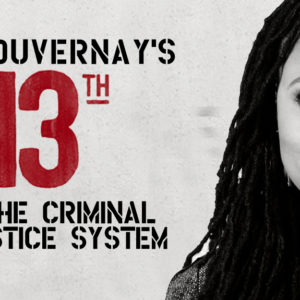A Live Supreme is MusiQology’s space for live concert and performance reviews. In addition to reporting on the music itself, we look to situate the shows within a broader conversation by contextualizing, historicizing, and theorizing the performances and artists.
One of the alluring things about writing about music of the black diaspora is a belief that it can be an organizing agent—a place where, despite the historic abuse and displacement of people of color throughout modern history, a clear narrative emerges. The ring shout begat the field song begat the blues. Gospel begat R&B. Reggae begat hip-hop.
It’s an attractive (if problematic) impulse: No path proceeds this orderly; no influence is this clearly articulable. And what do we make of a sound that is so uncategorizable that its mysticism (natural and otherwise) feels all its own.

One such case is the music of Lee “Scratch” Perry, a singular octogenarian Jamaican producer whose tour celebrating the fortieth anniversary of his important dub record, Super Ape, descended on Philadelphia this past month. His genre, dub, takes its name from duplication or doubling, where musicians copied existing songs using the B-side of a 45 RPM record. With the lyrics removed and the drums and bass reverberating from a soundsystem, Jamaican performers would toast live over these dub plates, a practice many suggest helped birth hip-hop once DJ Kool Herc, a Kingston-born expat, started hosting block parties in the South Bronx in the 1970s.
But outside of the public eye, a group of producers were experimenting with the open soundscape of the dub plates, adding in-studio accoutrements like echo, reverb, panoramic delay, and layered instruments. The bass got bigger. The drums got louder. The tracks got longer. And dub was born. Perry was one of the forerunners of the style; from his Black Ark Studio in Kingston he helped launch the careers of Bob Marley and the Wailers, Mighty Diamonds, Augustus Pablo, and more across the Atlantic and off the island. By the mid-seventies, the man who was known as “The Upsetter” had become a prolific engineer, pushing the genre and continuing his experimentations with sound (and drugs).
From the World Café stage, Perry’s band on this night is Subatomic Sound System, a loose collective led by Emch, a New York-based DJ (selector in the Jamaican parlance) who narrates the experience as the room fills with bodies and smoke and he starts to build a soundscape for Perry’s arrival. Larry McDonald—another elder statesman of Jamaican music—is on percussion, surrounded by a trio of drums that echo and warp under his skilled fingers. Emch grabs a melodica—a handheld keyboard played by blowing and popularized by Augustus Pablo, another of the dub vanguard—and begins to bleat melodic lines over his beats.

Another instrument—the saxophone—takes on a surprising and exhilarating role in a dub band. Rather than solos, the saxophonist provides contrasting flourishes that are the call to the off-beat guitar licks’ response. But as the song and space expand, the saxophonist—on this night it is Troy “Shaka” Simms—pushes the beat into something else. With Simms’s horn picking up effects thanks to Emch’s wizardry, the soundscape begins to expand.
This music feels big, mythic, and distant, somehow stark and multivalent at the same time. The instruments layer over each other, essentially live dubbing the in-studio experimentations that gave the form its name. The saxophone’s notes twist and twirl in the foggy air. A series of covers begins the set, touching on the catalogues of a moment in subcultural Jamaican music.
And at the climax, The Upsetter emerges as the band kicks into “Zion’s Blood,” a foreboding track that, in a fashion consistent with many Jamaican songs of the time (and in disagreement with my assertion at the beginning of this story) references the African continent. “African blood is flowing through my veins/So I and I shall never fade away.”
Perry is eighty years old, and a lifetime of ganja-smoking and unclear hygienic practice (apocrypha suggests he arranged his own excrement in patterns on the floor of Black Ark) has left him a bit haggard of appearance. But his spirit is as alive as ever—he chugs a Guinness, carries a microphone wrapped in an emptied beer can, and takes spliff after spliff from the enthralled audience (who are not obeying the “No Smoking” signs) as Super Ape reverberates through the World Café.
Upsetter Station, a now-defunct magazine dedicated to Perry, says it’s “almost a jazz album, the aural equivalent of a walk at midnight, where bright colours are present, but darkened by shadows.” The lights cut through the clouds of piped-in fog and other organic smokes as the band played on, through Super Ape and drawing on Perry’s extensive catalogue for a surprisingly lengthy show. This is alternately menacing and languid; “Black Vest” and “Patience” slink like more traditional reggae tunes while “Underground” and the title track give voice to the multivalence of dread.

Jamaican musicians often point to an industrial arrangement that has disadvantaged them, drawing upon Rastafari teachings to lampoon Babylon, a society of corruption and decadence that has kept blacks of the world in its thrall (Bob Marley famously sang, “Babylon System is the vampire” in 1979). The Upsetter is no exception, a provocateur and critic of Babylon, who helped produce Max Romeo’s important “War Ina Babylon” in 1976, part of the so-called “Black Ark Trilogy” along with The Heptones’ Party Time and Junior Murvin’s Police and Thieves.
Age has not blunted Perry’s criticism—his latest song, “Black Ark Vampires,” is the evening’s dramatic conclusion. Backed by Subatomic Sound System, Perry’s dub wanderings and mysticism continue as he takes aim at the vampiric spirits that have troubled him and his people for centuries. The sounds—like the dense sparseness of the dub records themselves—reverberate across time and space.
Listen to Lee “Scratch” Perry’s Super Ape here:

 Share On Facebook
Share On Facebook Tweet It
Tweet It




